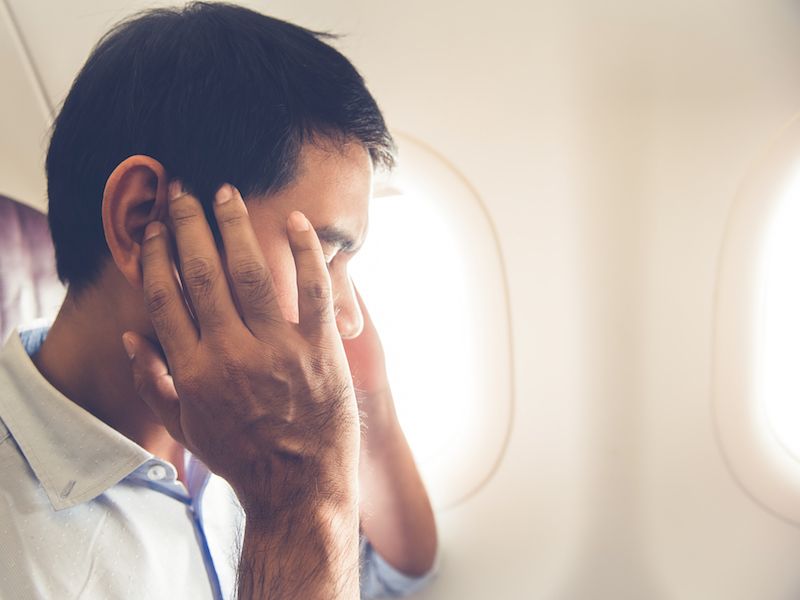
You have good days, and you have bad days, that’s commonplace for those with tinnitus but why? Tinnitus is the medical name for ringing in the ears, a condition that more than 45 million Americans experience, according to the American Tinnitus Association, and that’s accompanied by hearing loss by around 90 percent of them.
But what is tough to comprehend is why it’s nearly non-existent on some days and on others the ringing is so intrusive. It’s not completely clear why this happens, but some ordinary triggers may explain it.
What Is Tinnitus?
The following phantom noises are heard by people who suffer from tinnitus:
- Buzzing
- Ringing
- Clicking
- Roaring
- Hissing
One of the things that makes tinnitus so disturbing is that you hear it but no one else does. The noise can vary in pitch and volume, too. One day it might be a roar and the next day be gone completely.
Exactly What is The Cause of Tinnitus?
Alterations in a person’s hearing are the most common cause. The cause of these changes could be:
- Ear bone changes
- Noise trauma
- Aging
- Earwax build up
There are other potential causes, also, including:
- High blood pressure
- Acoustic neuroma
- Tumor in the neck or head
- Meniere’s disease
- Atherosclerosis
- A problem with the carotid artery or jugular vein
- Head trauma
- TMJ problems
For a small percentage of people, there isn’t any obvious reason for them to have tinnitus.
Consult your doctor to have your ears checked if you suddenly notice the symptoms of tinnitus. The problem may be something treatable or it might be a symptom of a life-threatening condition like high blood pressure or heart disease. It may also be a side effect of a new medication.
Why Does the Ringing Get Worse on Some Days?
It’s a bit of a medical mystery as to why some days are worse than others for those who have tinnitus. The reason could be different for each person, also. There are common triggers that might explain it, though.
Loud Events
Your tinnitus can be aggravated by loud events like concerts, club music, and fireworks. The number one option is to wear ear protection if you expect a lot of noise. You can enjoy the music at a live performance, for instance, without injuring your ears by putting in earplugs.
Another thing you can do is to put some distance between you and the source of the loud sound. When you go to a fireworks display don’t sit up front and stay away from the front row at a live performance. With this and hearing protection, the impact to your ears will be decreased.
Loud Noises at Home
Loud noises around your house can also be harmful. Tinnitus can be triggered by a lawn mower for example. Think about other things you do at home that could be a problem:
- Laundry – For example, if you fold clothes while the washer is running.
- Wearing headphones – It might be time to lose the earbuds or headphones. Their job is to increase the volume, and that might be aggravating your ears.
- Woodworking – Power tools are loud enough to be a problem.
If you can’t stay away from loud noises at least put in hearing protection.
Workplace Noise
Loud noises at work are just as damaging as any other. If you work around machinery or in construction it’s especially important to use ear protection. Talk to your boss about your ear health; they will probably supply the hearing protection you need. Let your ears rest during your off time.
Air Pressure Changes
Most people have experienced ear popping when they take a plane. The shift in air pressure plus the noise from the plane engines can lead to an increase in tinnitus. Think about hearing protection if you are traveling and bring some gum to equalize the air pressure.
You can experience changes in pressure without leaving your home, too. If you have sinus problems, for example, consider taking medication to help alleviate them.
Medication
Medication could also be the issue. Certain medications are ototoxic, meaning they have an impact on the ears. Included on this list are these common medications:
- Diuretics
- Over-the-counter pain relievers
- Antibiotics
Talk to your doctor if you experience an intensifying of tinnitus after you begin taking a new medication. It might be feasible to change to something else.
For some people tinnitus is not just aggravating it’s disabling. To be able to determine how to control it from day to day, step one is to find out what’s causing it.
